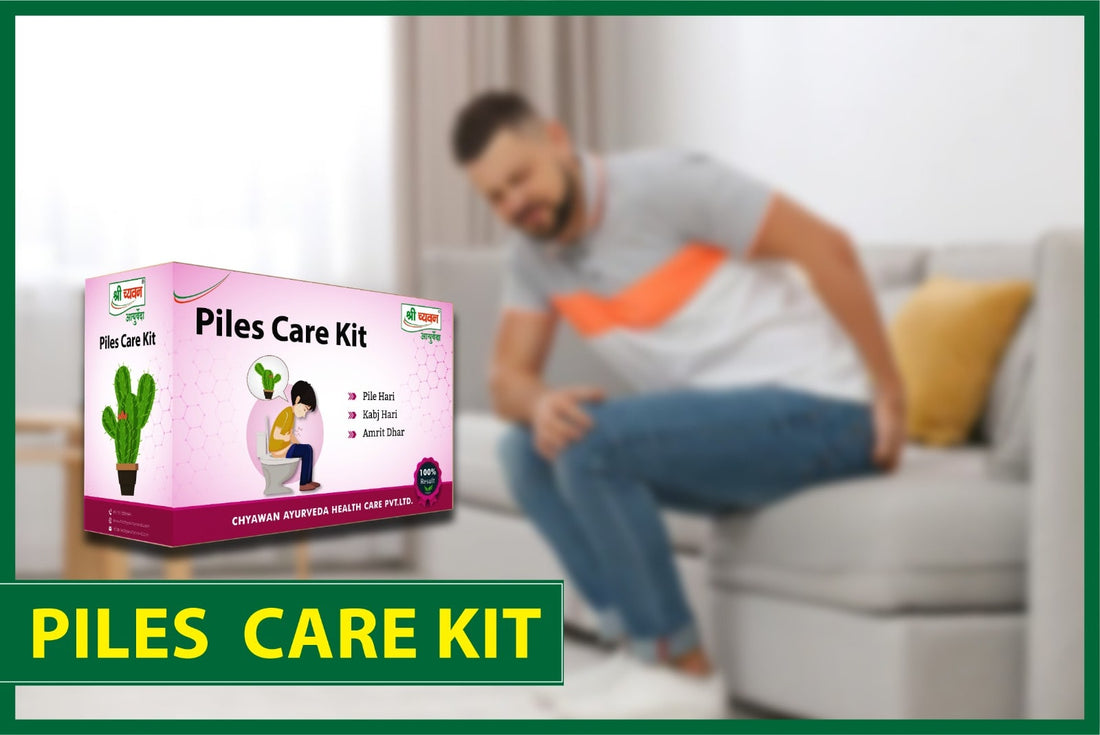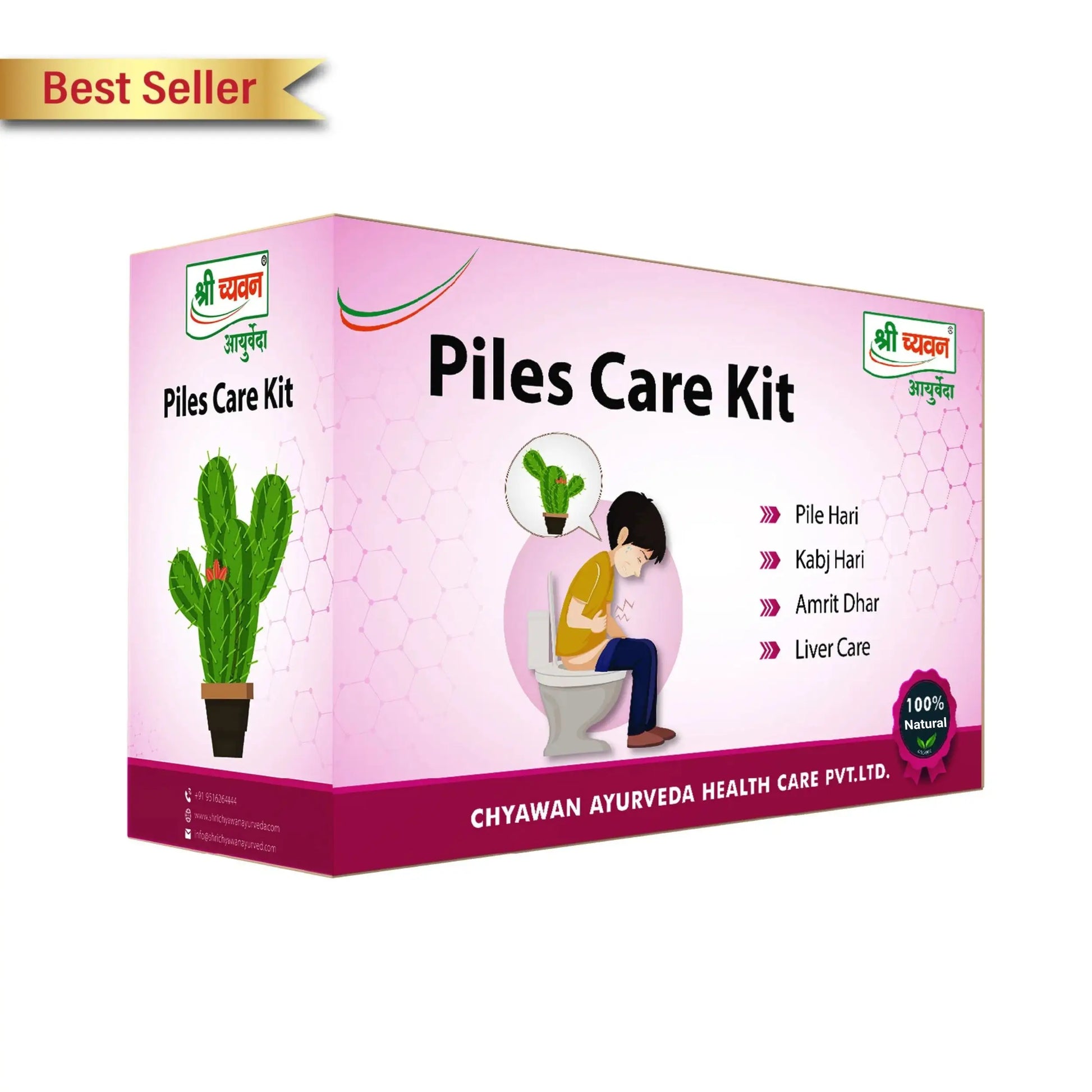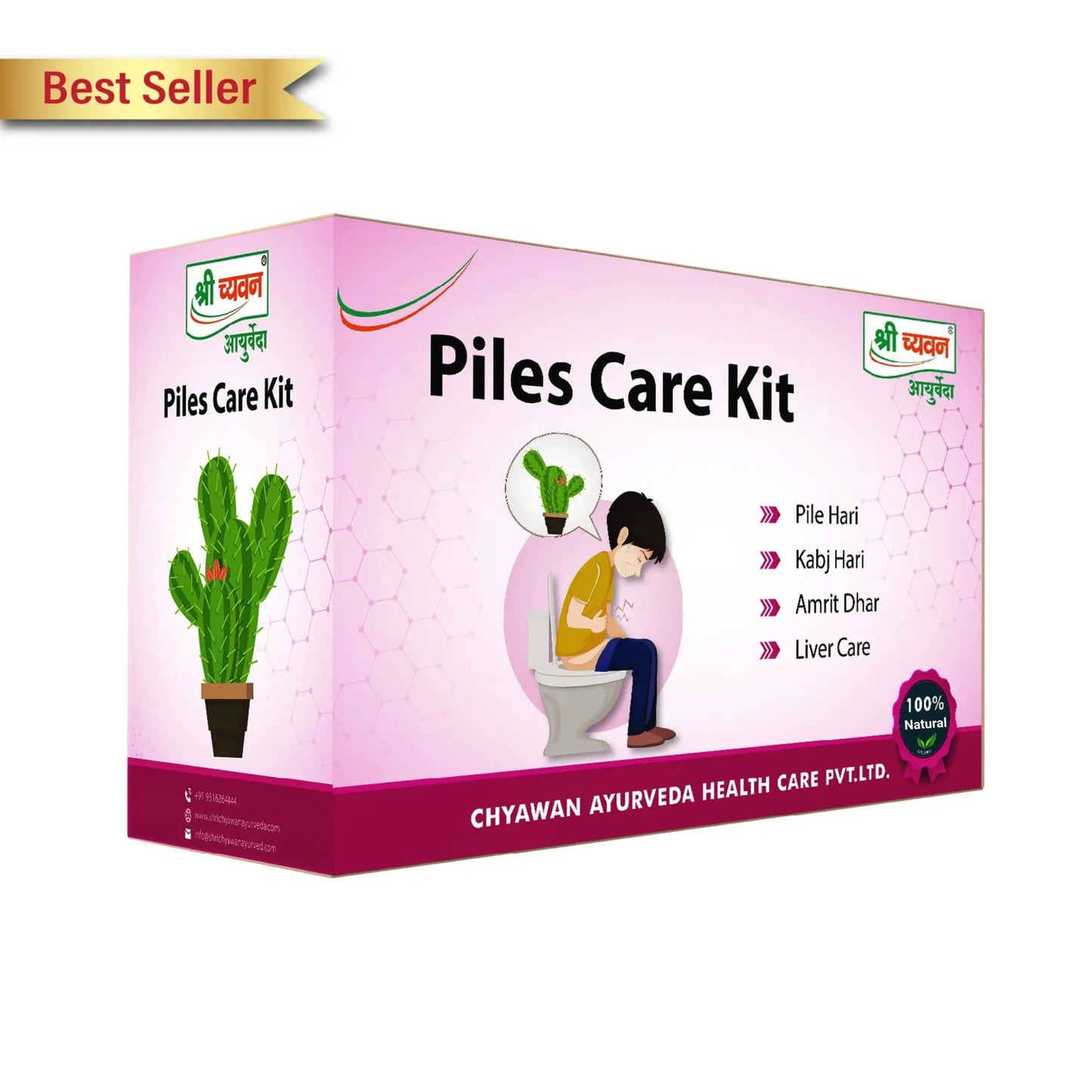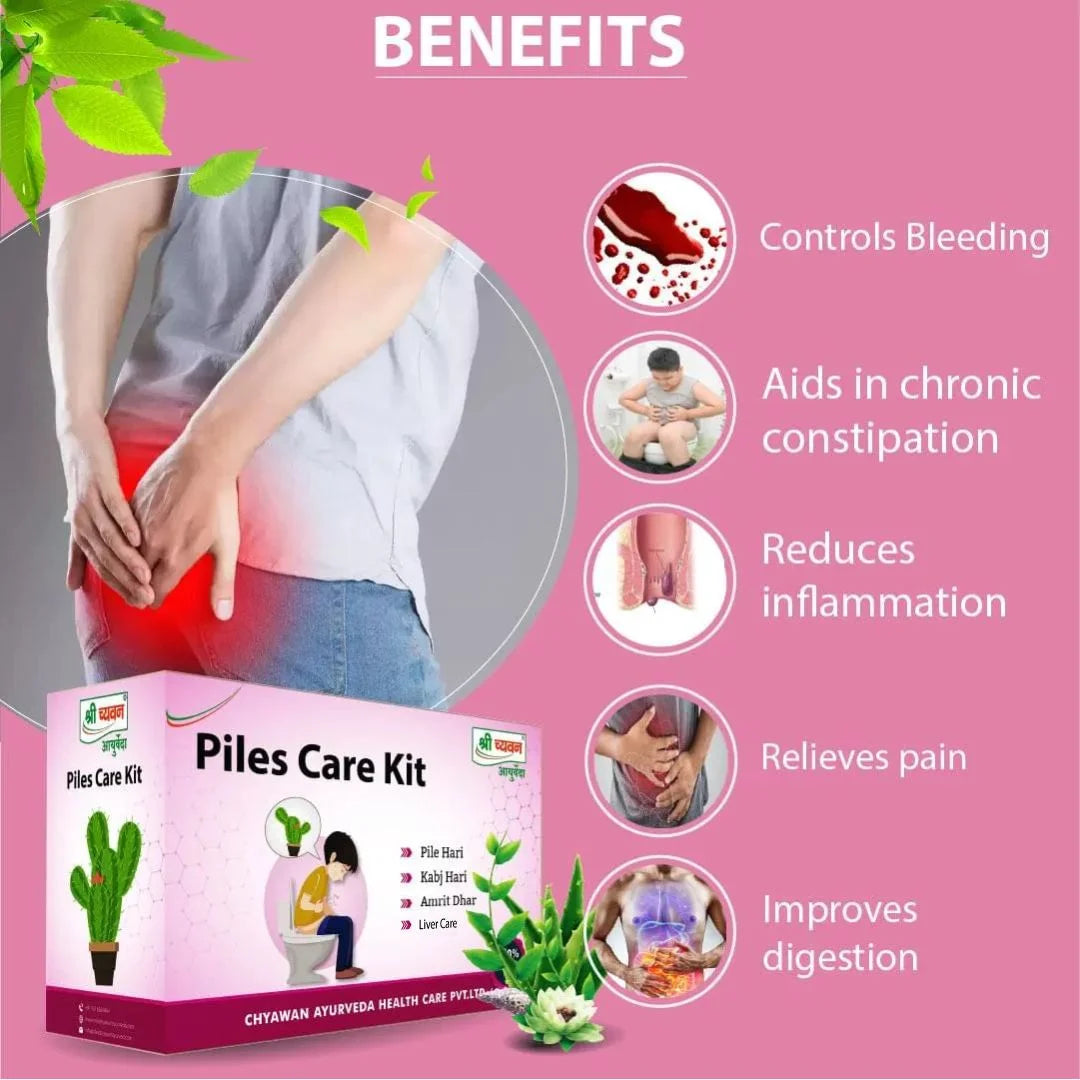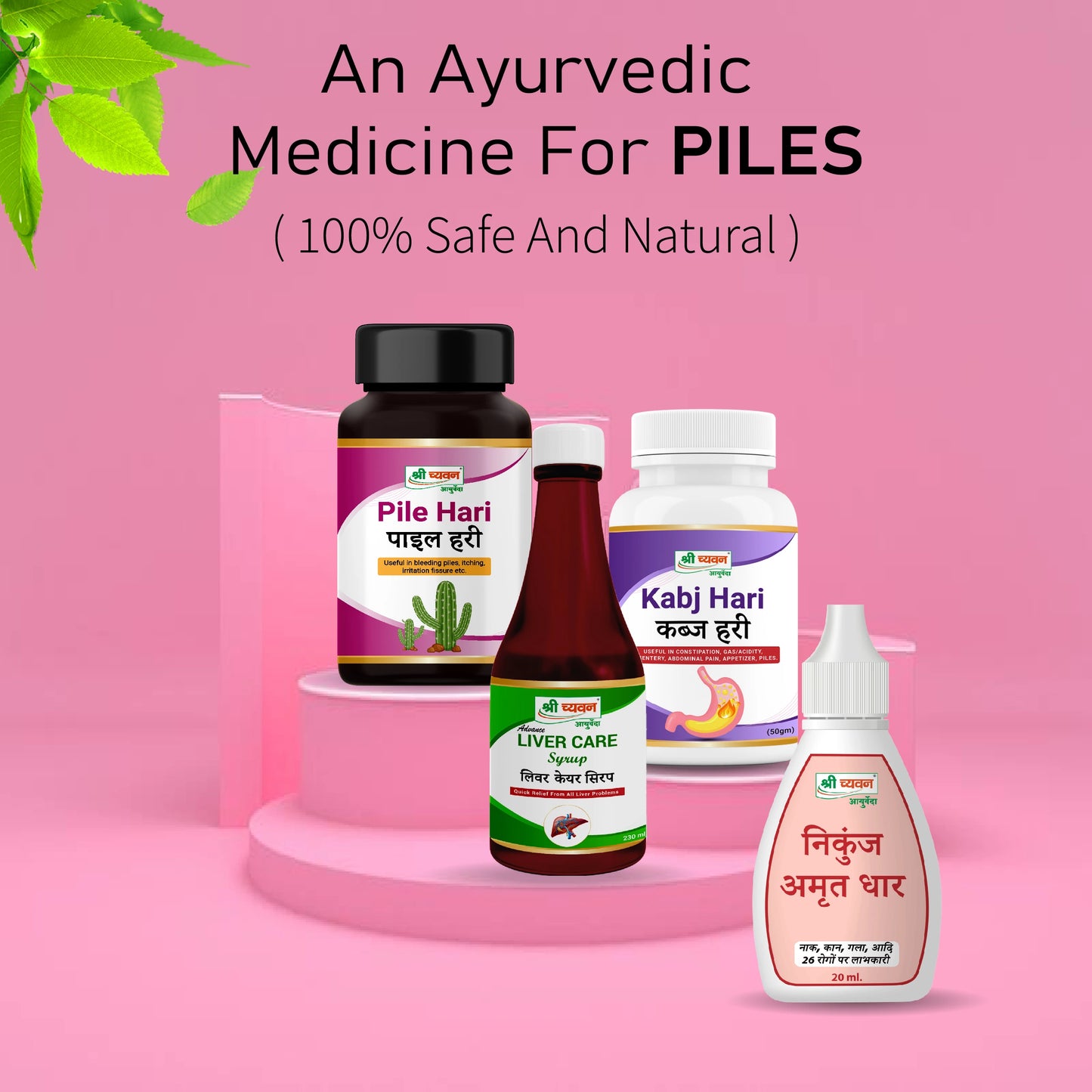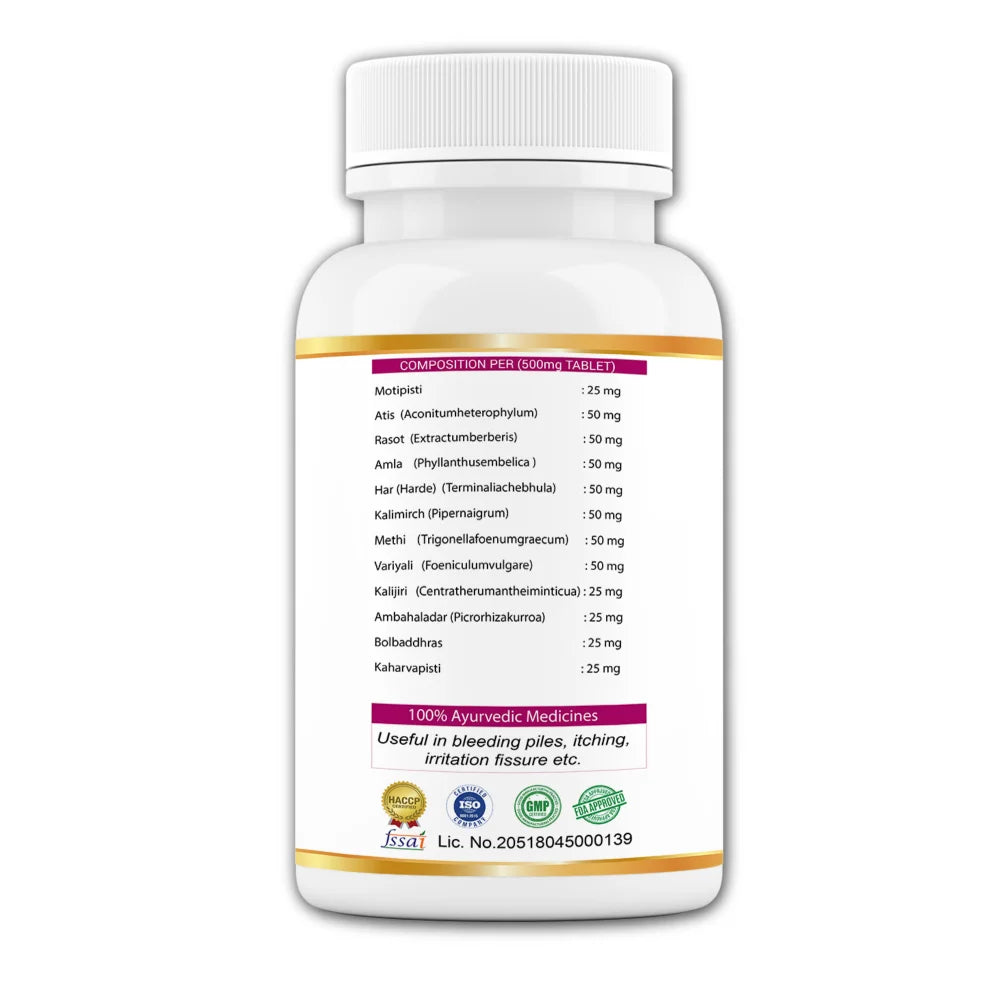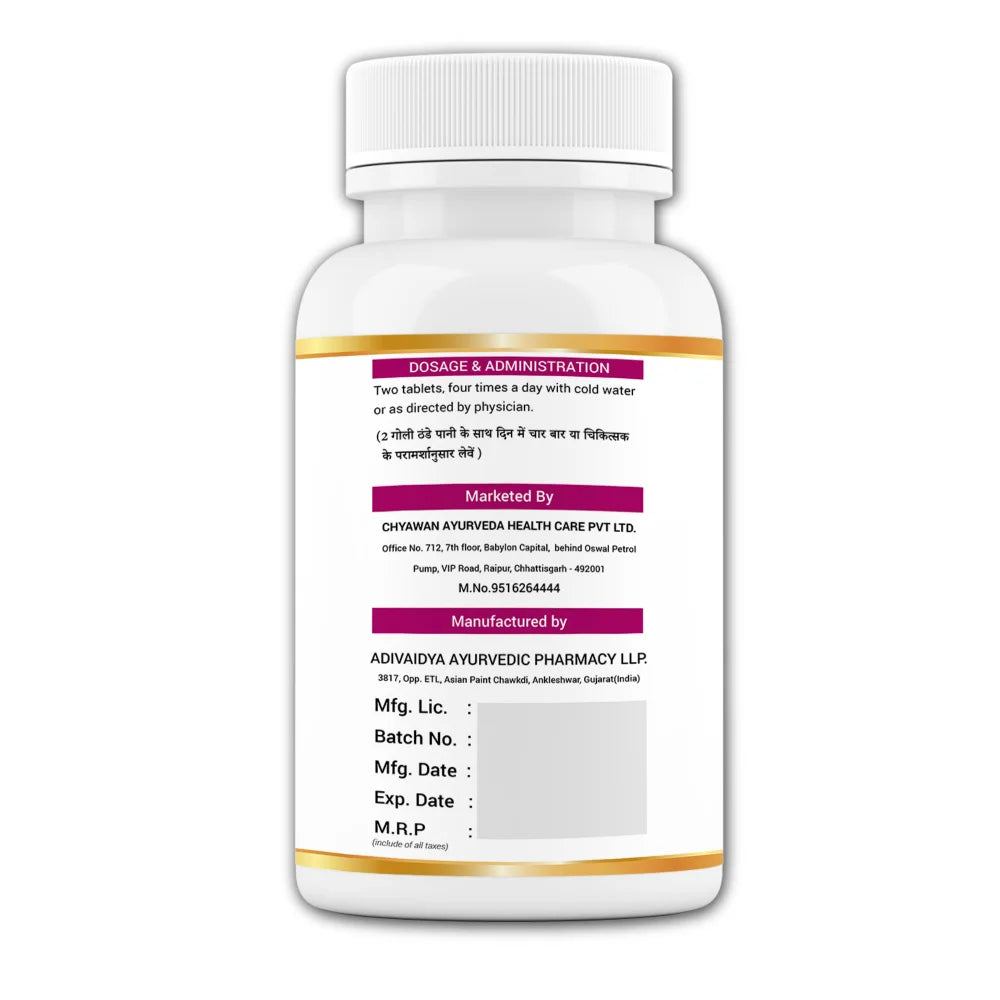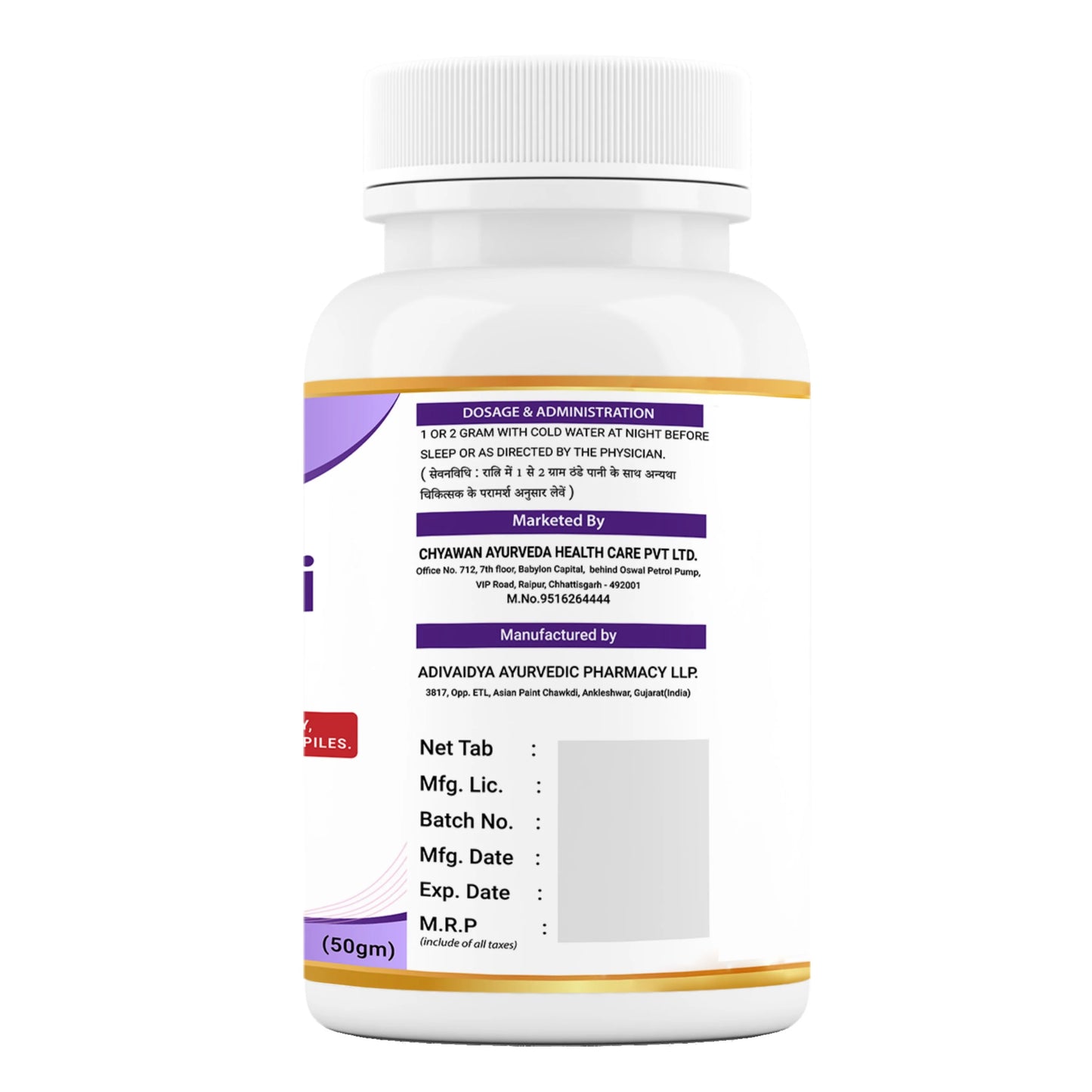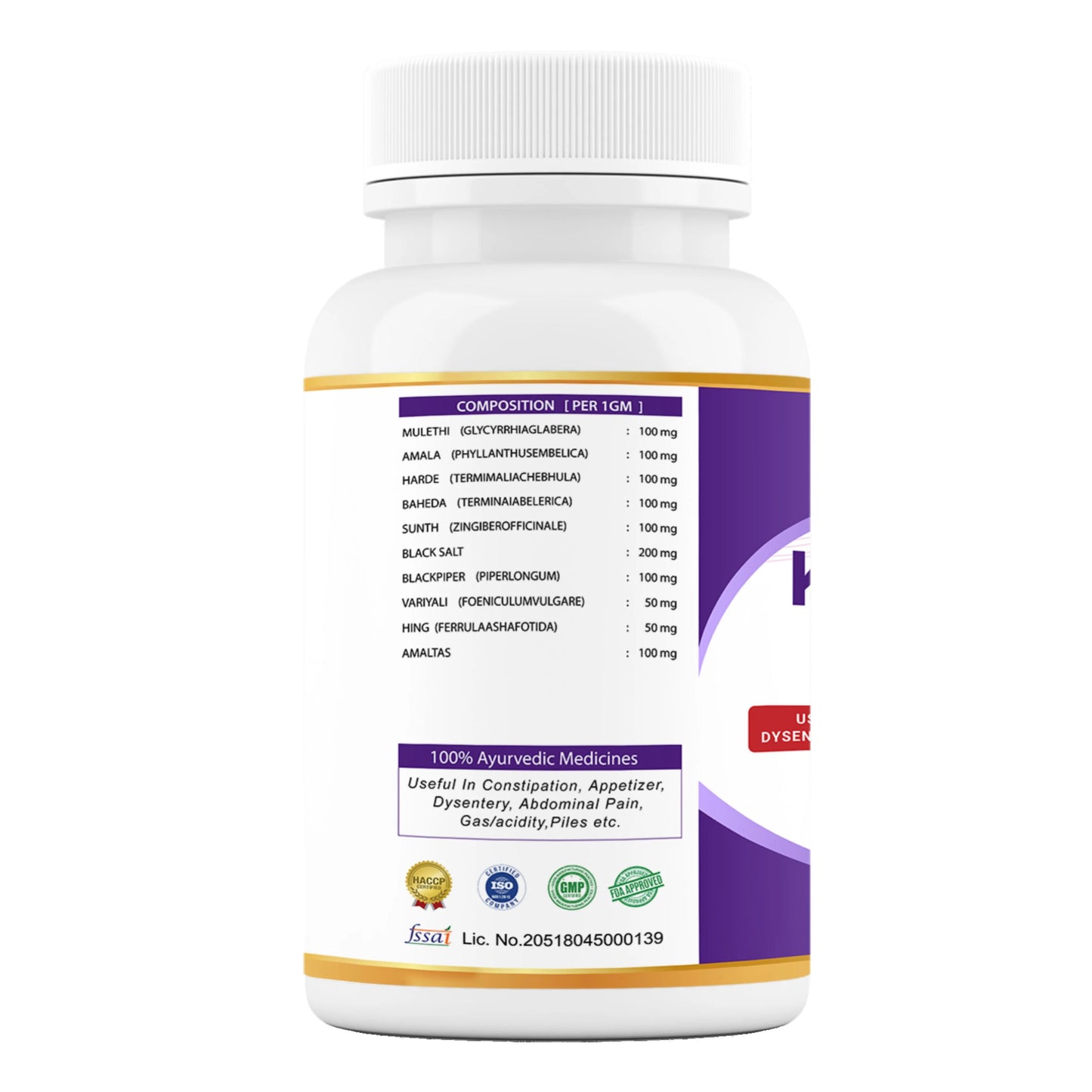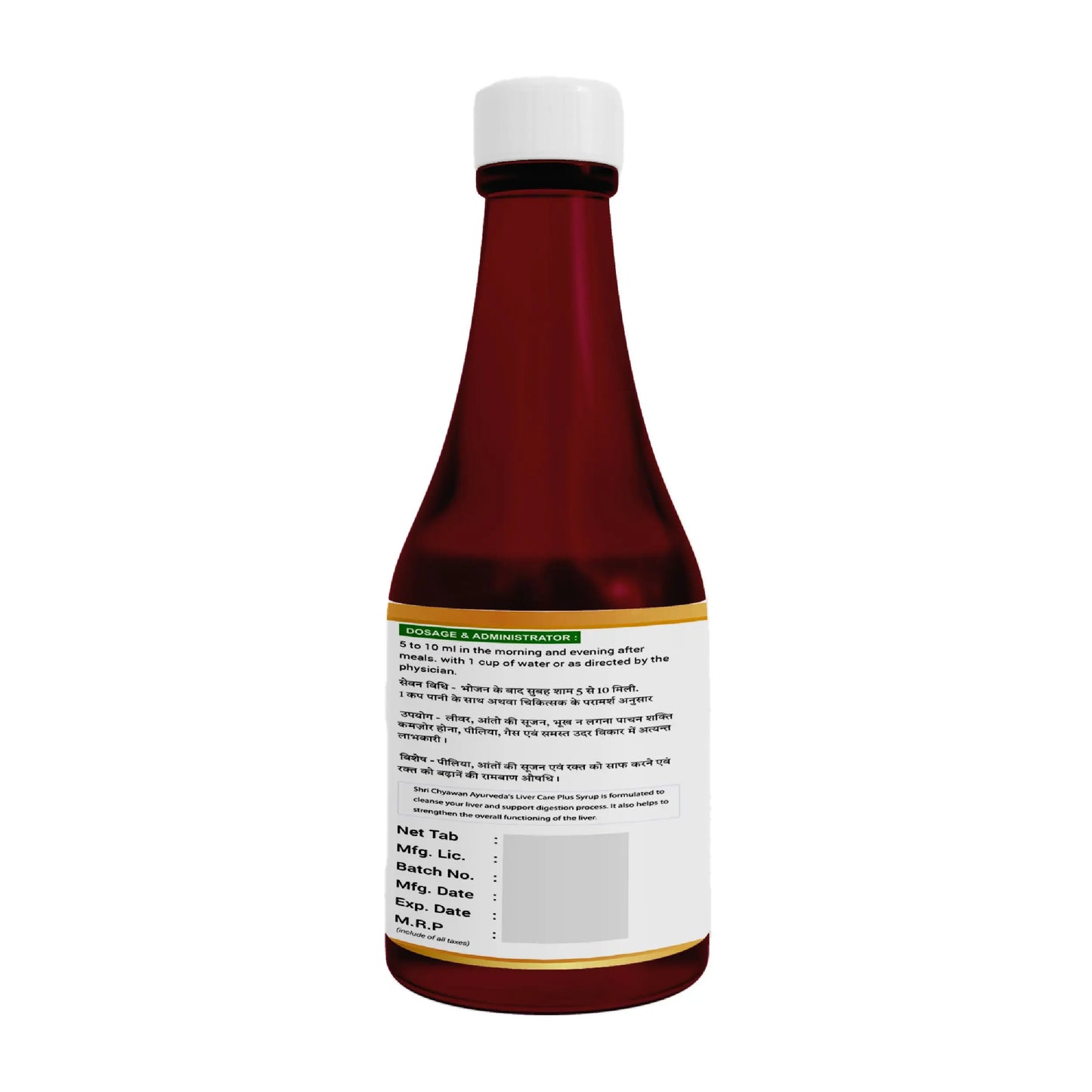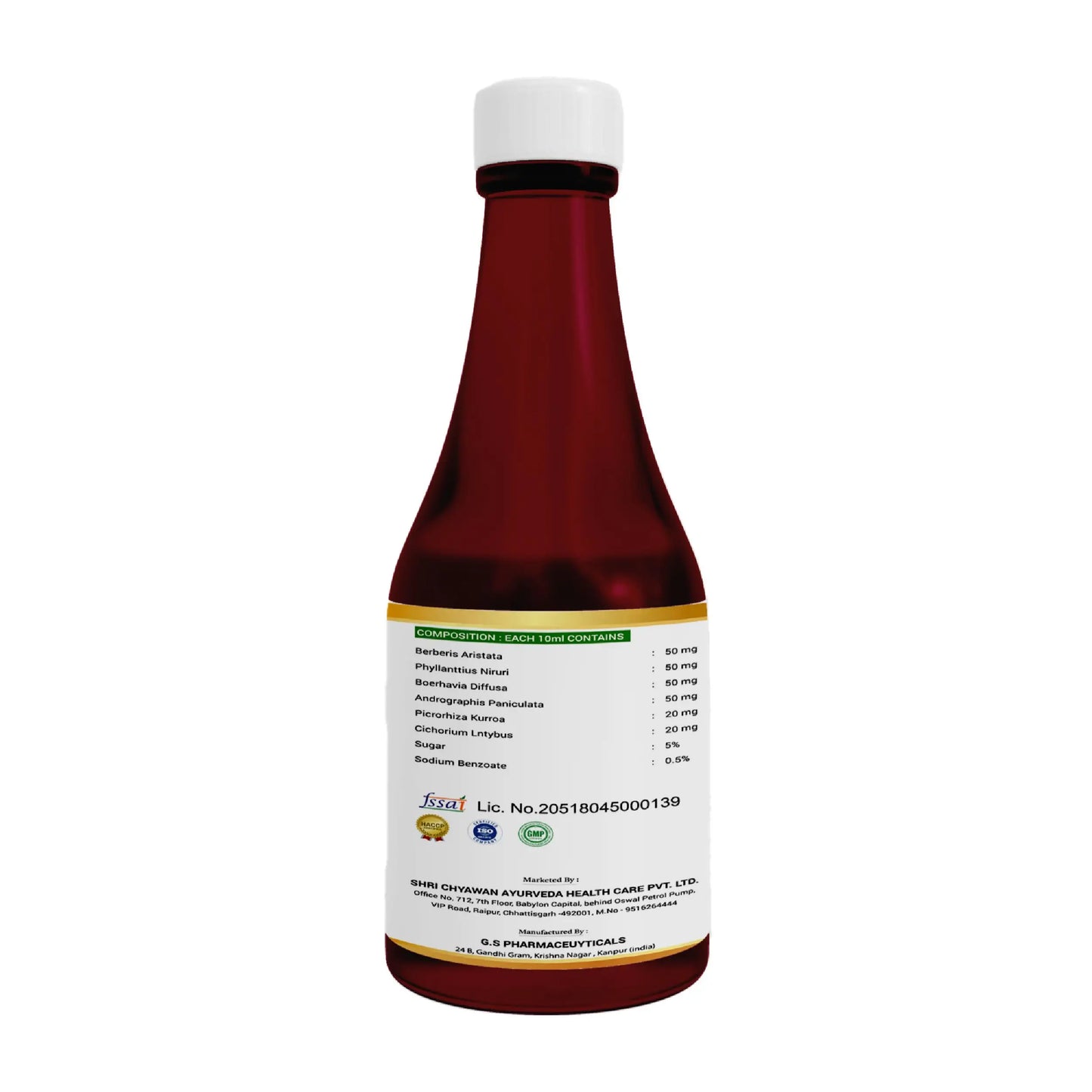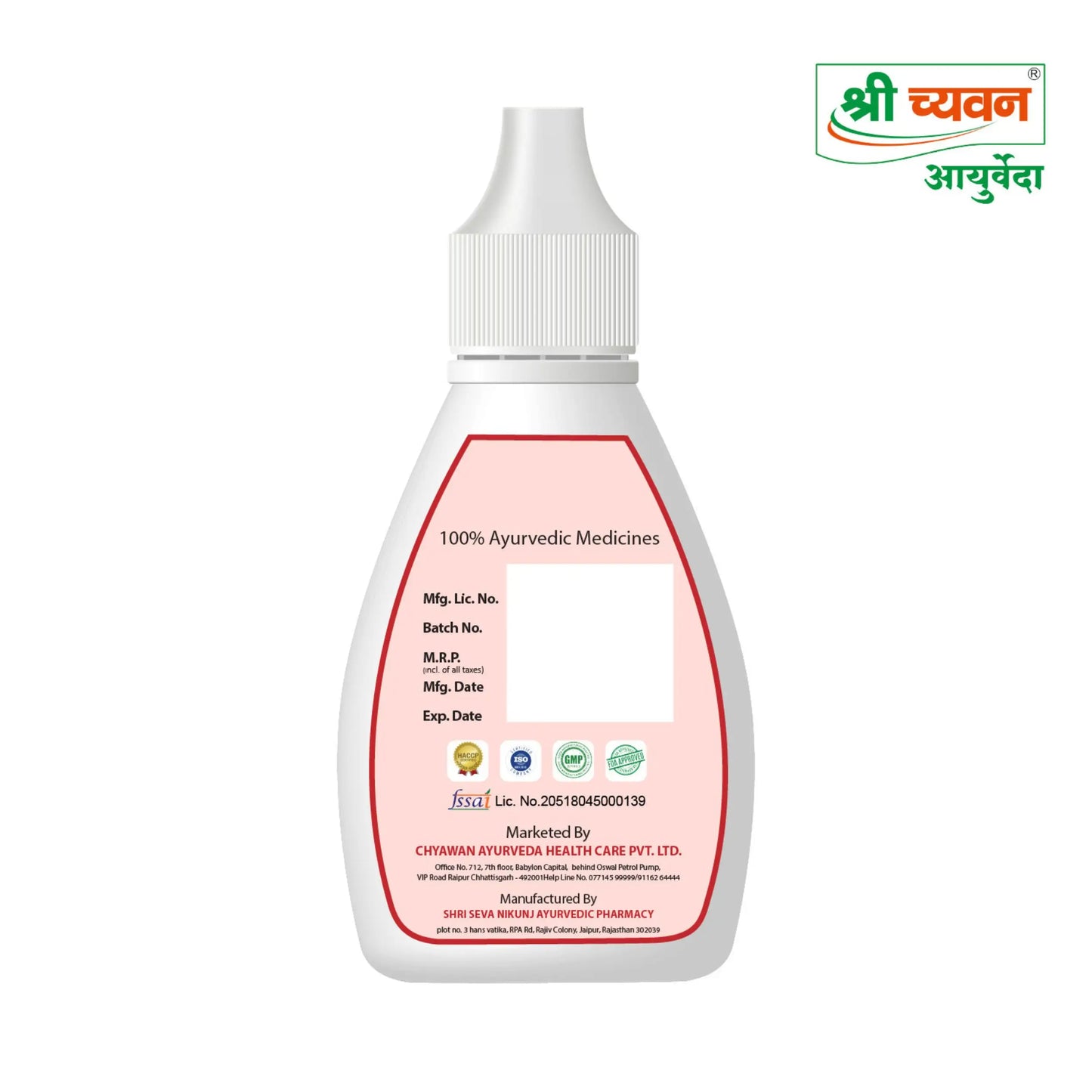In Ayurveda, piles are referred to as "Arsha" or "Bavasir." It is a condition characterized by swollen and inflamed blood vessels in the rectum and anus. The ultimate goal in Ayurveda is to balance each dosha. This is done through a combination of diet, lifestyle modifications, and herbal remedies.
In Ayurvedic belief, your dominant dosha determines the type of haemorrhoids you may be experiencing:
- Pitta Dosha: People who are Pitta might tend to experience inflamed, bleeding haemorrhoids that are soft and red. Other symptoms include fever, diarrhoea, and a feeling of thirst.
- Vata Dosha: People who are Vata may experience a high level of pain, constipation, and black haemorrhoids with a rough, hard texture.
- Kapha Dosha: People who are Kapha may have poor digestion and haemorrhoids that are slippery, light or white in colour, soft, and large in size.
Basically, Piles or haemorrhoids are swollen inside and around the lining of your buttocks or anal lining. They usually get better on their own after a few days. It is commonly seen in the age group of 45-65 years. Nearly three out of four adults will have haemorrhoids from time to time.
Here's some information on the causes, symptoms, and remedies for piles according to Ayurveda:
Causes of Piles (Arsha):
- Chronic constipation: Straining during bowel movements due to constipation can lead to piles.
- Sedentary lifestyle: Lack of physical activity and sitting for long periods can contribute to the development of piles.
- Unhealthy dietary habits: Consuming low-fiber diets and inadequate water intake can cause constipation and increase the risk of piles.
- Pregnancy: The pressure exerted on the rectal area during pregnancy can contribute to the development of piles.
- Hereditary factors: A family history of piles can make an individual more prone to the condition.
- Obesity: Excessive weight can put extra pressure on the rectal area, leading to piles.
Symptoms of Piles:
In most cases, the symptoms of piles are not serious and resolve on their own.
An individual with piles may experience the following symptoms:
- painful lumps in and around the anus
- itching and discomfort around the anus
- discomfort during and after passing stools
- bloody stools
Piles can escalate into a more severe condition. These include:
- excessive anal bleeding, possibly leading to anaemia
- infection
- faecal incontinence
- anal fistula
- strangulated haemorrhoid, in which anal muscles cut off blood supply to the haemorrhoid
However, many people with piles may not experience any symptoms.
Treatment of piles in Ayurveda:
Shri Chyawan Ayurveda has carefully formulated a Piles Care Kit for natural treatment of Haemorrhoids/ Piles. All our products are prepared using best quality herbs and strictly follow the principals of Ayurveda. All our products are 100% Pure, Natural and Safe to be used and do not cause any side-effects. Ayurvedic treatment for Piles is completely safe option compared to surgery.
The Piles Care Kit consists of:
- Pile Hari Vati: This helps to heal inflammations and soothe pain and discomfort. It also has laxative properties that induce peristaltic movements, thus making the process of evacuating of bowels pain-free.
Ingredients: It consists of- Ambahaladar, Kalijiri, Rasot, Kali mirch, Har, Methatis, Kaharvapisti, Motipisti, Amla, Methi, Variyali, Bolbaddhras, Kaharvapisti.
How to use: One tablet everyday in the morning and evening, post breakfast and snacks respectively.
- Kabj Hari Churn: This helps in a lot of stomach related issues like gas, constipation and abdominal pain.
Ingredients: It consists of Harde, Sonth, Mulethi, Baheda, Hing, Variyali, Amaltas, Black Salt, Blackpiper, Amla.
How to use: Mix 1-2gm of this churn with half cup of water, consume everyday before going to bed.
- Nikunj Amrit Dhar: It helps to soothe the burning or itching sensation near the anal or the rectum area.
Ingredients: It consists of Sat Ajwain, Sat Pudina, Kapoor, essential oils and clove oil.
How to use: Take 4-5 drops on a cotton ball and apply on the affected area twice a day.
4. Liver Care Syrup: Shri Chyawan Ayurveda's Liver Care Syrup is formulated to cleanse your liver and support digestion process. It also helps to strengthen the overall functioning of the liver.
Ingredients: It consists of Chitrakmul, Amla, Harde, Baheda, Bel Patra, Dhana, Aloe vera, Ajwain, Punarnava, Giloy Satva, Neem Chal, Tulsi.
How to use: Consume 1-2 teaspoonful of Liver Care Plus Syrup, thrice a day or as suggested by your physician.
Remedies for Piles (Arsha) in Ayurveda:
- Dietary modifications: Include high-fiber foods in your diet, such as whole grains, fruits, vegetables, and legumes. Drink an adequate amount of water to maintain proper hydration. Avoid spicy, oily, and processed foods.
- Lifestyle changes:
- Engage in regular physical activity to improve digestion and bowel movements.
- Avoid sitting or standing for prolonged periods. Take breaks and move around.
- Practice stress-reducing techniques like yoga and meditation.
- Herbal remedies:
- Triphala: A combination of three fruits (amla, haritaki, and bibhitaki) that helps regulate bowel movements and relieves constipation.
- Aloe vera: Consuming aloe vera juice or applying aloe vera gel externally can provide relief from pain and inflammation.
- Kutajarishta: An Ayurvedic herbal preparation that can help alleviate piles by improving digestion and reducing constipation.
- Sitz baths: Sitting in warm water for 10-15 minutes several times a day can soothe the anal area, reduce swelling, and provide relief.
- Ayurvedic medicines: Consult an Ayurvedic practitioner who can prescribe specific herbal medicines based on your symptoms and overall health condition.

